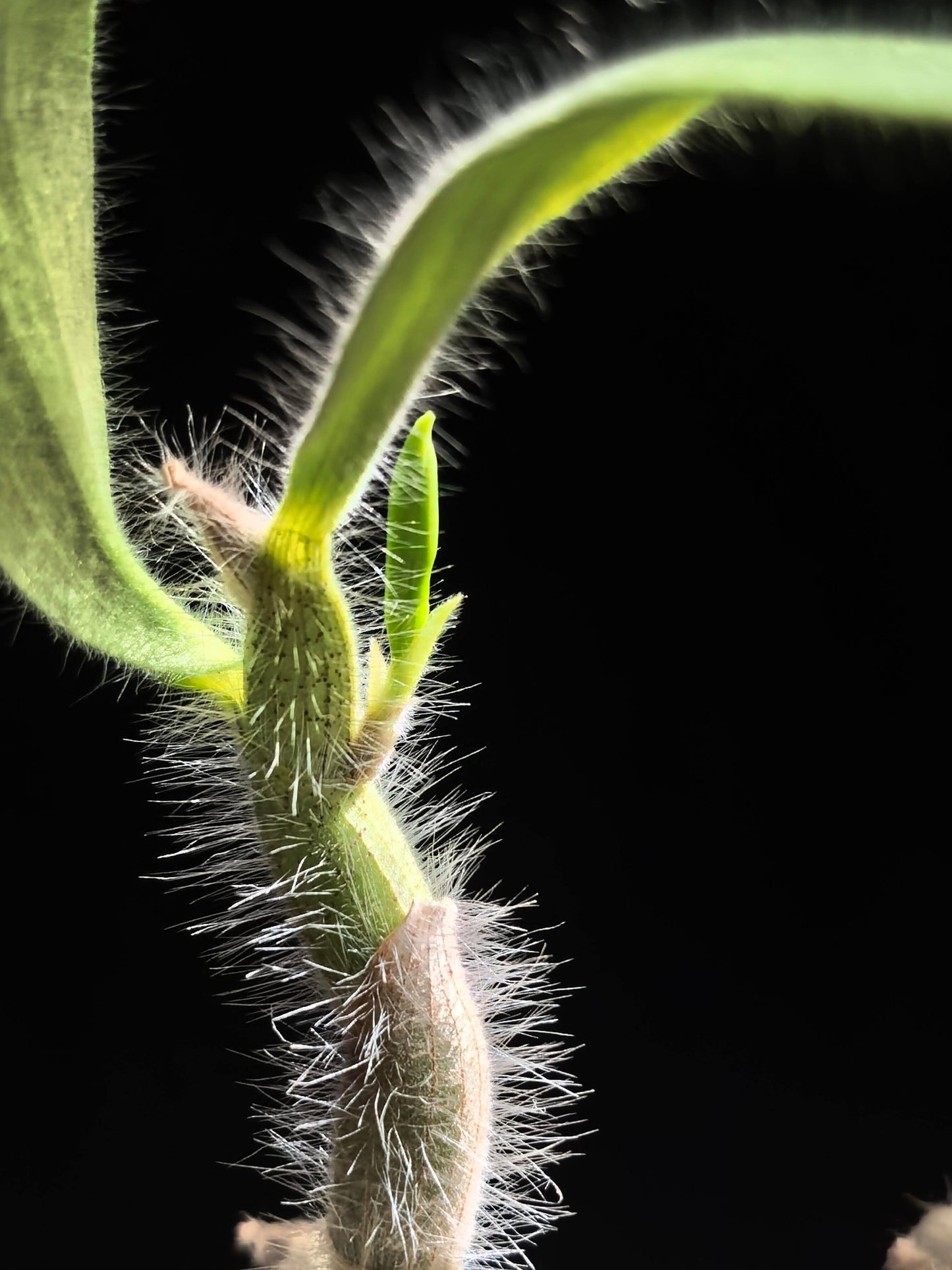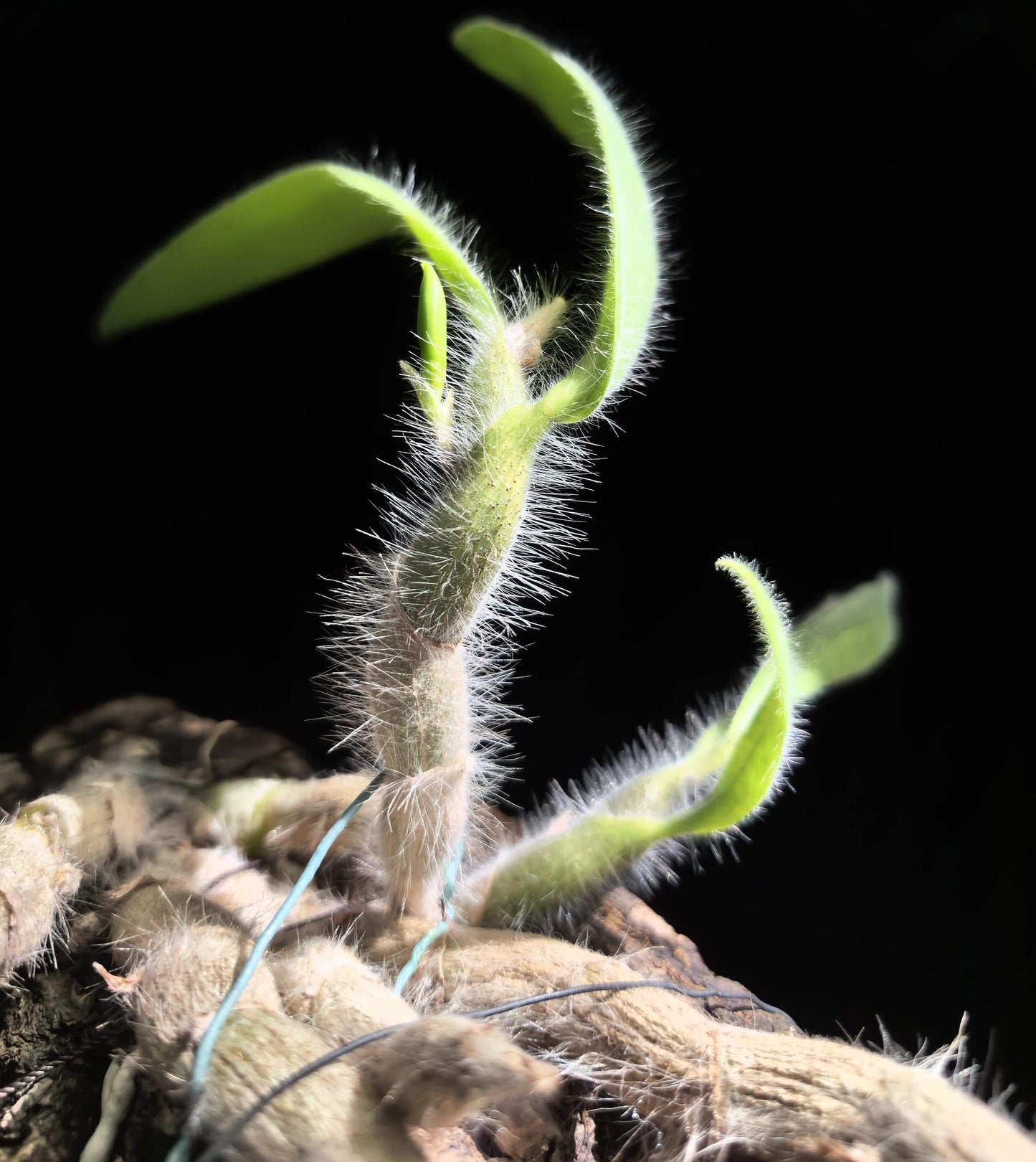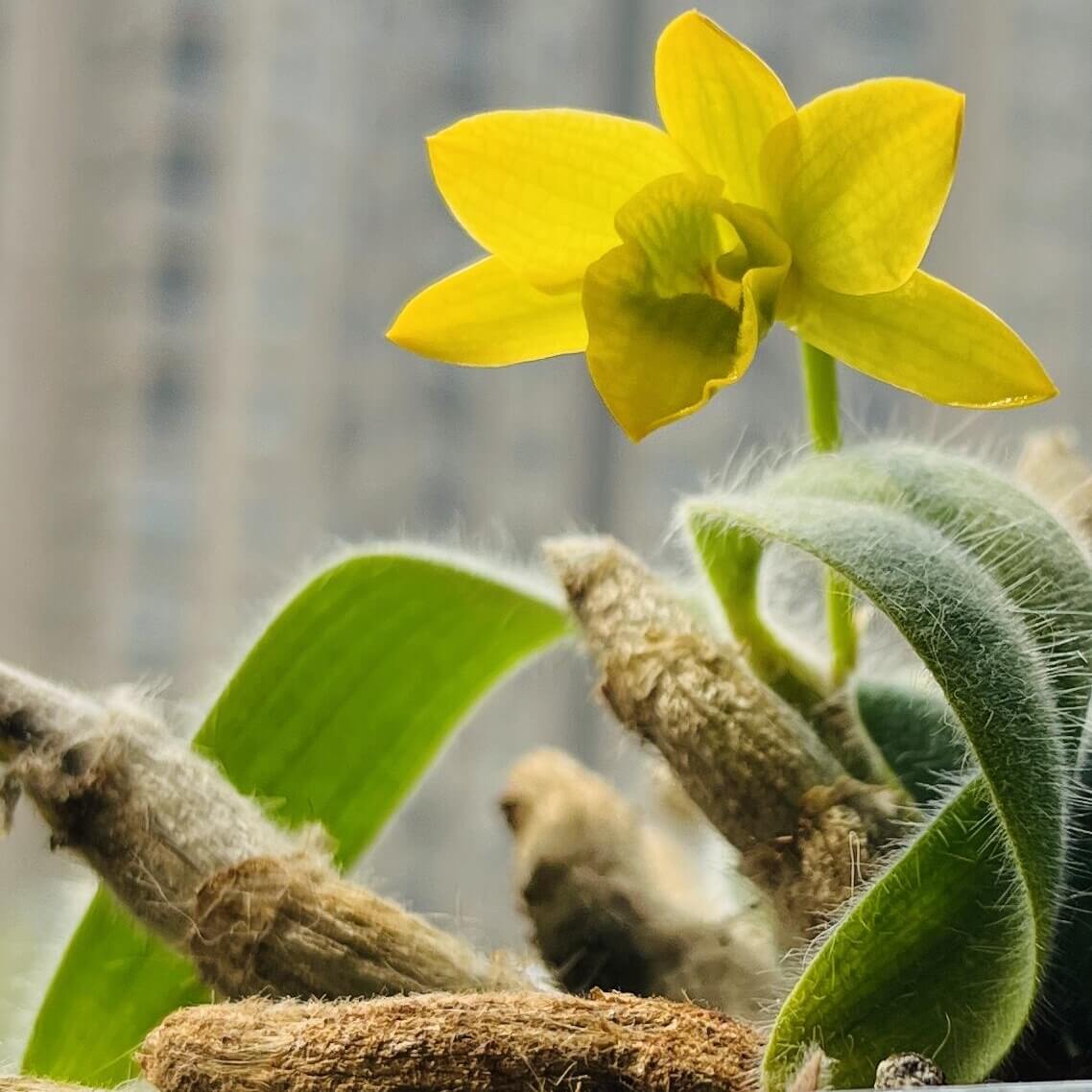Begin With Plants
White-haired Dendrobium (Dendrobium senile)
White-haired Dendrobium (Dendrobium senile)
Couldn't load pickup availability
The white-haired dendrobium (Dendrobium senile) is a mini-to-small-sized epiphytic or lithophytic orchid native to Indochina, specifically Thailand, Vietnam, Laos, and Myanmar. It grows in warm-to-cool conditions and is distinguished by its hairy, succulent-like pseudobulbs measuring 5–15 cm in length, each bearing 2–6 ovate-lanceolate, semi-deciduous leaves about 4–5 cm long.
Features:
-
Blooming Season: Blooms in spring and summer, producing fragrant flowers on short inflorescences from both leafy and leafless canes.
-
Flower Appearance: Flowers are striking with lemon or butter-yellow petals, a broad spatulate lip decorated with green spots and red striations, typically 4–6 cm in diameter.
-
Fragrance: Notably lemon-scented, with a pleasing aroma that lasts 3–4 weeks.
-
Noteworthy Traits: The fuzzy, pendulous pseudobulbs give it a unique “old man” look.
Care Tips:
-
Light
-
Requires bright, indirect light, approximately 20,000–35,000 lux. Provide ~50% shade in summer to prevent burn.
-
-
Temperature
-
Summer: Day 28–29 °C, night around 19 °C (8–10 °C diurnal range).
-
Spring: Day 30–32 °C, night 14–19 °C (11–16 °C range).
-
Winter: Day 25–28 °C, night cools to 7–10 °C (up to 16–18 °C range).
-
-
Humidity
-
Late spring to autumn: 75–80% humidity.
-
Winter to early spring: Reduce to around 60%.
-
-
Watering
-
Growing season: Water abundantly (daily in summer), allowing slight drying between waterings.
-
Autumn: Gradual reduction in watering.
-
Winter rest period (3–5 months): Allow drying between waterings, with occasional misting to avoid desiccation.
-
-
Growing Medium & Mounting
-
Suitable for mounting on bark or cork, provided humidity is high.
-
When potted, use a loose, fast-draining medium—clay pots are preferred to promote drying.
-
Repot or remount anytime new roots form.
-
-
Fertilizer
-
Apply ¼–½ strength orchid fertilizer weekly during active growth.
-
Use high-nitrogen fertilizer from spring to mid-summer, shifting to high-phosphorus fertilizer in late summer through autumn.
-
Cease fertilizing during winter rest.
-
Share





